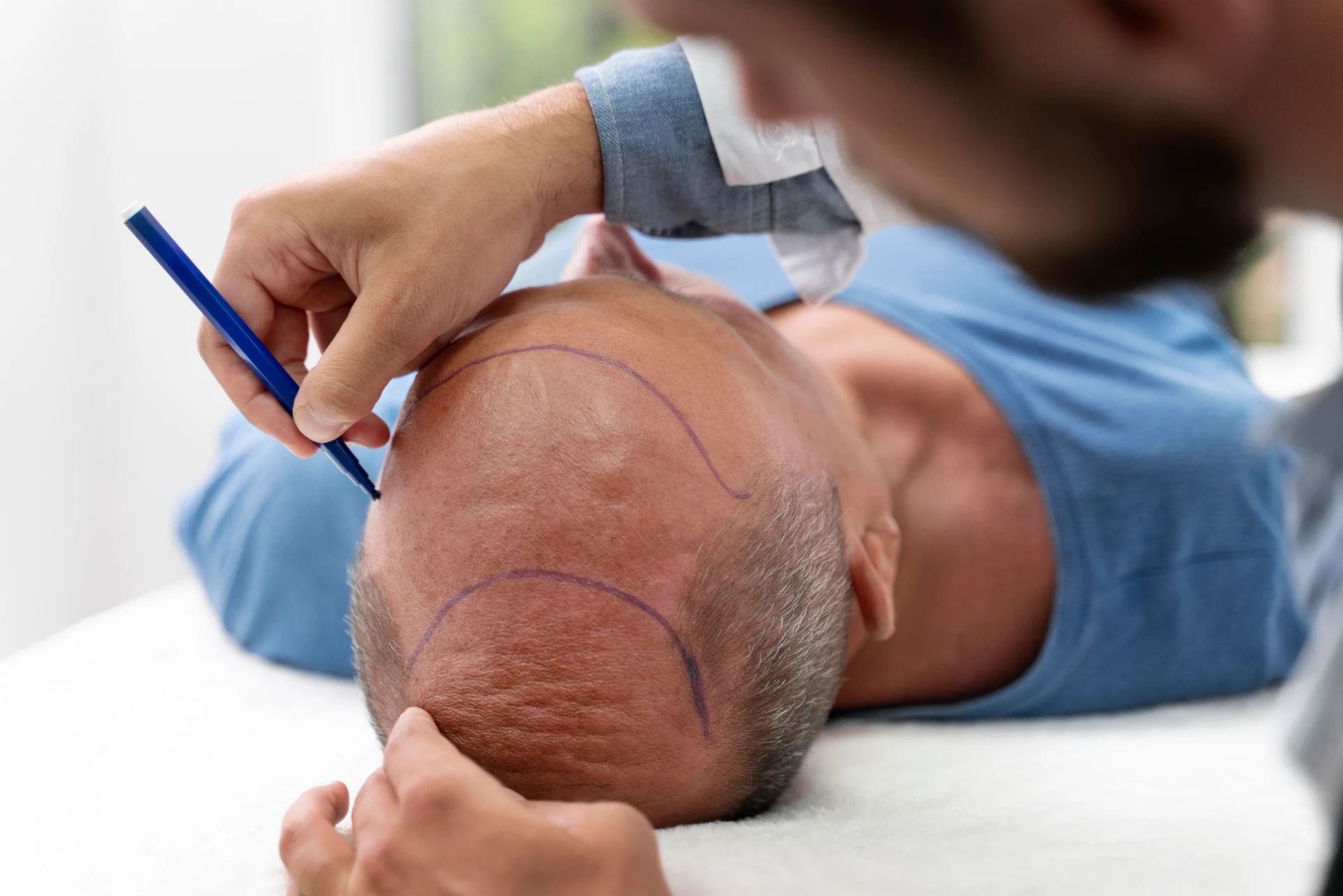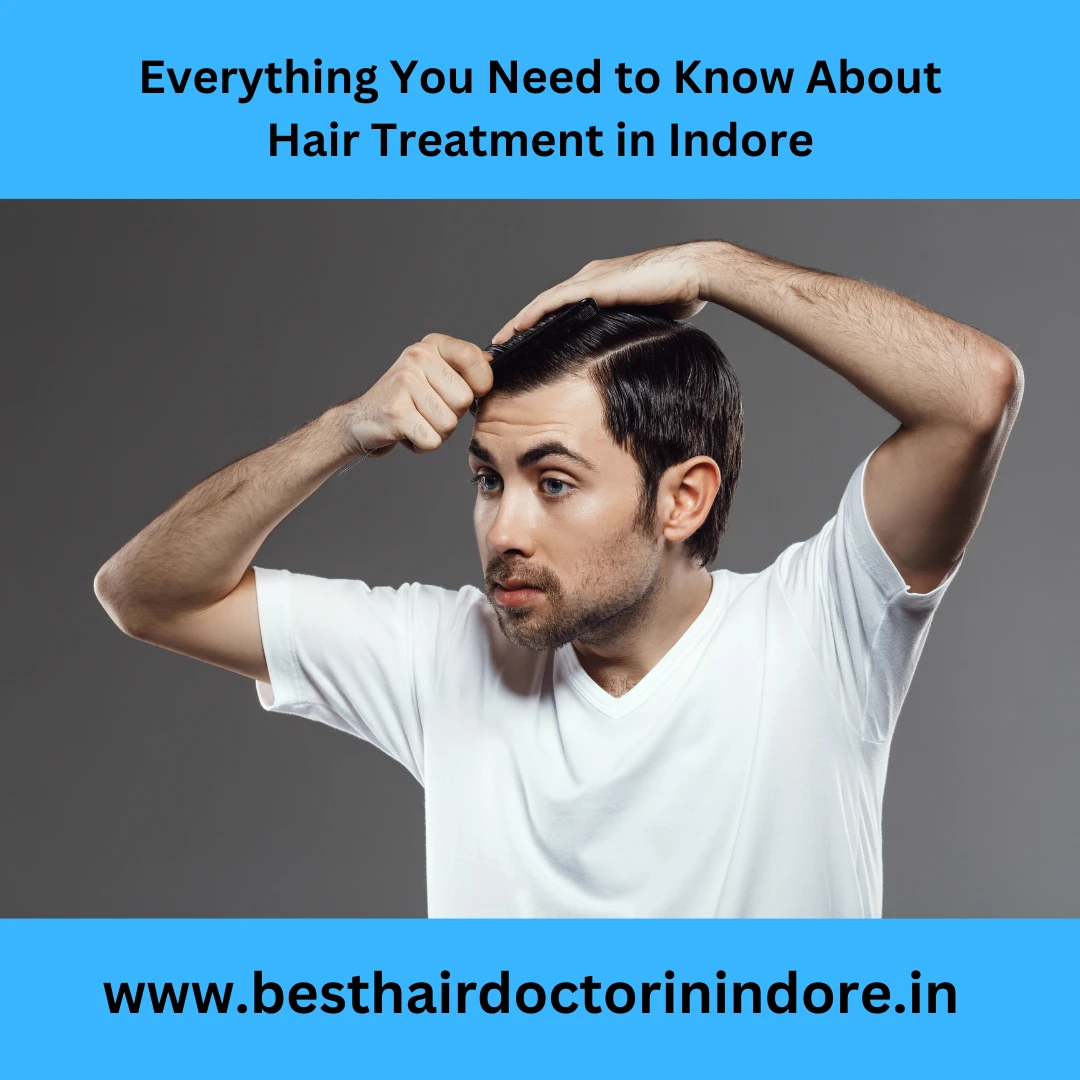Indore, a bustling city in the heart of India, is not just known for its rich cultural heritage and mouth-watering street food, but also for its advanced healthcare facilities, including cutting-edge hair treatment services. If you’re struggling with hair loss, thinning hair, or other hair-related issues, Indore offers a range of treatments that can help restore your confidence and give you the luscious locks you desire. This comprehensive guide will walk you through everything you need to know about hair treatment in Indore covering the types of treatments available, what to expect during the procedures, and tips for choosing the right clinic.
Table of Contents
ToggleUnderstanding Hair Loss and Its Causes
Before diving into the various hair treatments available in Indore, it’s essential to understand the common causes of hair loss. Many factors lead to hair loss:
- Genetics: Hereditary hair loss, also known as androgenetic alopecia, is the most common cause of hair thinning and baldness in both men and women.
- Hormonal Changes: Conditions such as pregnancy, menopause, and thyroid disorders can lead to temporary or permanent hair loss.
- Medical Conditions: Diseases like alopecia areata, scalp infections, and other skin disorders can contribute to hair loss.
- Medications: Certain drugs used to treat cancer, arthritis, depression, heart problems, and high blood pressure can cause hair loss as a side effect.
- Stress: Telogen effluvium is a form of hair loss that can be caused by physical or mental stress.
- Nutritional Deficiencies: Lack of essential nutrients, such as iron, zinc, and vitamins, can weaken hair and lead to shedding.
- Hair Care Practices: Overuse of hair styling tools, chemical treatments, and tight hairstyles can damage hair and cause it to fall out.
Types of Hair Treatment in Indore
Indore offers a variety of hair treatment options to address different types of hair loss and scalp conditions. The following are some of the most common therapies available:
1. Hair Transplant Surgery
Hair transplantation surgery is a permanent treatment to hair loss. It involves transferring hair follicles from one part of the body (usually the back or sides of the scalp) to the balding or thinning areas. The two main techniques used in hair transplant surgery are:
- Follicular Unit Transplantation (FUT): In this method, a strip of scalp is removed from the donor area, and individual hair follicles are extracted and implanted into the recipient area.
- Follicular Unit Extraction (FUE): This technique involves extracting individual hair follicles directly from the donor area and implanting them into the balding areas. FUE is less intrusive and leaves little scars.
2. Platelet-Rich Plasma (PRP) Therapy
PRP therapy is a non-surgical treatment that uses the patient’s blood to stimulate hair growth. The process involves drawing blood, processing it to concentrate the platelets, and injecting the platelet-rich plasma into the scalp. PRP contains growth factors that promote healing and hair follicle regeneration.
3. Laser Hair Therapy
Laser hair therapy, also known as low-level laser therapy (LLLT), is a non-invasive treatment that uses red light to stimulate hair follicles and promote hair growth. The red light penetrates the scalp, increasing blood flow and encouraging hair follicles to grow thicker and stronger hair.
4. Mesotherapy
Mesotherapy is a technique that involves injecting a combination of vitamins, minerals, and medications into the scalp to improve blood circulation and nourish hair follicles. This treatment can help reduce hair loss, strengthen existing hair, and promote new hair growth.
5. Hair Growth Medications
Several medications are available to treat hair loss and promote hair growth. These include:
- Minoxidil: An over-the-counter topical solution that helps stimulate hair growth and slow down hair loss. It comes in various strengths for men and women.
- Finasteride: A prescription oral medication that helps reduce hair loss by inhibiting the production of dihydrotestosterone (DHT), a hormone that causes hair follicles to shrink.
6. Scalp Micropigmentation
Scalp micro-pigmentation (SMP) is a cosmetic procedure that involves tattooing tiny dots on the scalp to create the appearance of fuller hair. This treatment is suitable for individuals with thinning hair, bald spots, or complete baldness.
7. Hair Extensions and Wigs
For those looking for a temporary solution to hair loss, hair extensions and wigs are viable options. High-quality hair extensions and wigs made from natural hair can blend seamlessly with your existing hair, providing a natural look.

What to Expect During Hair Treatment Procedures
The process and experience of undergoing hair treatment in Indore can vary depending on the type of treatment chosen. Here’s a general overview of what to expect from some common treatments:
Hair Transplant Surgery
- Consultation: The process begins with a consultation with a hair transplant surgeon to assess your hair loss condition, discuss your goals, and determine the best treatment plan.
- Procedure: On the day of the surgery, local anesthesia is administered to the donor and recipient areas. In FUT, a strip of scalp is removed, while in FUE, individual follicles are extracted. The follicles are then carefully implanted into the balding areas.
- Recovery: Post-surgery, you may experience mild pain, swelling, and redness in the treated areas. Your surgeon will provide aftercare instructions, and you’ll need to avoid strenuous activities for a few weeks.
PRP Therapy
- Consultation: A preliminary consultation is conducted to evaluate your suitability for PRP therapy.
- Procedure: Blood is drawn from your arm, processed in a centrifuge to concentrate the platelets, and then injected into the scalp. The whole procedure takes hours.
- Recovery: There’s minimal downtime with PRP therapy. You may experience slight soreness or redness at the injection sites, but this typically subsides within a few days.
Laser Hair Therapy
- Consultation: During the consultation, the practitioner will discuss your hair loss condition and determine the appropriate laser treatment plan.
- Procedure: You’ll sit under a laser device that emits low-level red light onto your scalp. Sessions typically last 20-30 minutes and are usually scheduled twice a week for several months.
- Recovery: Laser hair therapy is painless and requires no downtime. You can continue your normal activities immediately following each session.
Mesotherapy
- Consultation: The consultation involves discussing your hair loss issues and determining the best mesotherapy solution.
- Procedure: A series of micro-injections are administered into the scalp to deliver a cocktail of nutrients directly to the hair follicles. Each session lasts about 30-45 minutes.
- Recovery: There’s minimal recovery time needed for mesotherapy. You might experience slight discomfort or redness at the injection sites, but this usually resolves quickly.

Tips for Choosing the Right Hair Treatment Clinic in Indore
Selecting the right clinic for hair treatment in Indore is crucial for achieving the best results. Here are some suggestions to help you make an educated decision:
1. Research and Reviews
Start by researching hair treatment clinics in Indore. Find clinics with great evaluations and comments from prior patients. Online forums and social media can also provide insights into the experiences of others.
2. Qualifications and Experience
Ensure that the clinic you choose has qualified and experienced practitioners. Check the credentials of the doctors and surgeons to ensure they are certified and have a good track record in performing hair treatments.
3. Technology and Facilities
The clinic should be equipped with the latest technology and facilities for hair treatment. Advanced equipment and a clean, modern environment indicate a high standard of care.
4. Consultation and Transparency
A reputable clinic will offer a thorough consultation to assess your condition and discuss the best treatment options. They should be transparent about the procedures, costs, potential risks, and expected outcomes.
5. Before and After Photos
Ask to see before and after photos of previous patients undergoing similar treatments. This might help you have a better picture of what results to expect.
6. Post-Treatment Care
Choose a clinic that provides comprehensive post-treatment care and follow-up. Aftercare is critical for attaining optimal outcomes and maintaining a smooth recovery.
7. Cost and Financing Options
While cost should not be the only factor in your decision, it’s essential to understand the pricing structure and any available financing options. Some clinics offer payment plans to make treatments more affordable.
Conclusion
Hair treatment in Indore offers a wide range of solutions for those experiencing hair loss or thinning hair, from surgical options like hair transplants to non-invasive treatments like PRP and laser hair therapy. This treatment suits every need and budget. You can achieve natural-looking, long-lasting results and regain confidence by choosing a reputable clinic with experienced practitioners, such as Dr Meet’s Clinic. Remember to do your research, consult with professionals, and follow the recommended aftercare to ensure the best possible outcome.
Frequently Asked Question:-
1. What are the most effective hair treatments available in Indore?
- Answer: Indore offers a variety of effective hair treatments, including hair transplant surgery (FUT and FUE techniques), platelet-rich plasma (PRP) therapy, laser hair therapy, mesotherapy, and hair growth medications like Minoxidil and Finasteride. Each treatment is tailored to address different causes of hair loss and can be chosen based on individual needs and conditions.
2. How do I know if I am a good candidate for hair transplant surgery?
- Answer: To determine if you are a good candidate for hair transplant surgery, a thorough consultation with a qualified hair transplant surgeon is necessary. Ideal candidates typically have a stable donor area (usually the back or sides of the scalp) with sufficient hair follicles for transplantation. Additionally, candidates should be in good general health and have realistic expectations about the results.
3. What is the recovery time for hair transplant surgery?
- Answer: Recovery time for hair transplant surgery varies depending on the technique used. For FUT, recovery may take about 10-14 days, during which you might experience some swelling and discomfort. For FUE, recovery is generally quicker, with most people resuming normal activities within a week. Full recovery and the appearance of new hair growth can take several months.
4. Are there any side effects associated with PRP therapy for hair loss?
- Answer: PRP therapy for hair loss is considered safe and has minimal side effects since it uses the patient’s own blood. Common side effects may include mild soreness, redness, or swelling at the injection sites, which typically subside within a few days. Serious complications are rare, but it’s important to have the procedure done by a qualified professional to minimize risks.
5. How long does it take to see results from laser hair therapy?
- Answer: Results from laser hair therapy can vary, but most patients start to notice improvements in hair thickness and growth after about 12 weeks of consistent treatment. Full results can take 6-12 months to become apparent. It’s important to follow the recommended treatment schedule and maintain regular sessions to achieve the best outcomes.


